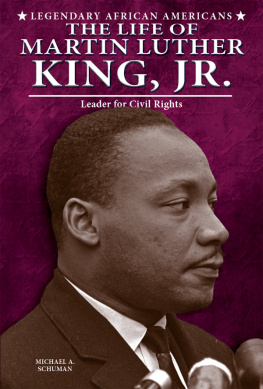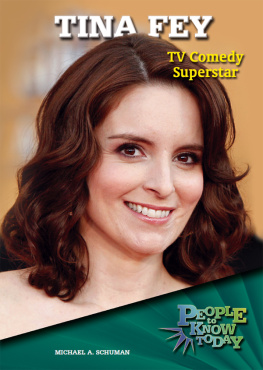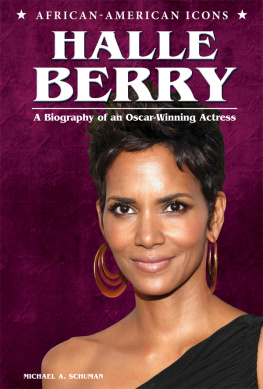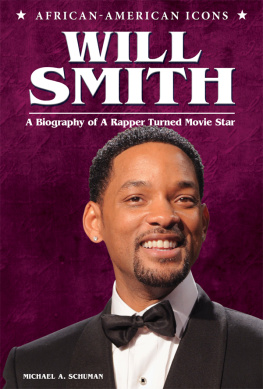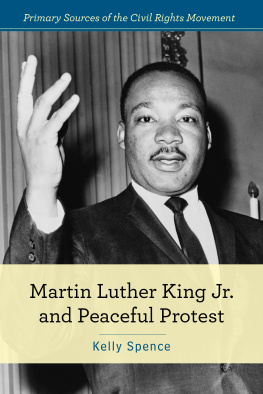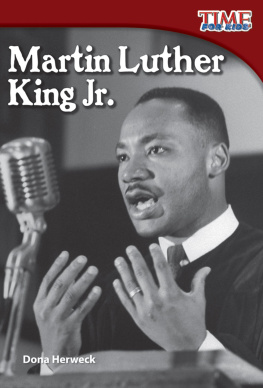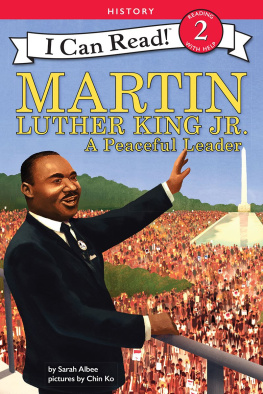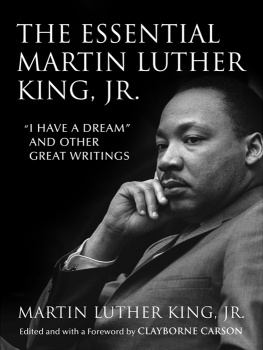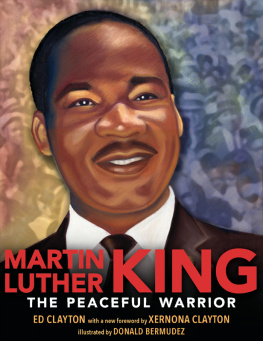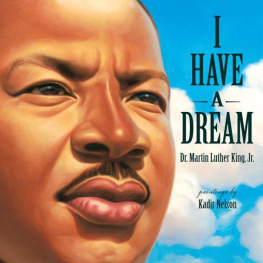Martin Luther King, Jr.s Fight for Civil Rights
So, even though we face the difficulties of today and tomorrow, I still have a dream These famous words were spoken by Dr. Martin Luther King, Jr., during the March on Washington in 1963. At the age of thirty-four, King was already a powerful speaker, minister, and leader in the fight for civil rights. Tragically, he was assassinated on April 4, 1968. During his short life, he led the successful Montgomery bus boycott, participated in sit-ins, marches, and voting rights campaigns, and worked on behalf of the Southern Christian Leadership Conference (SCLC).
Author Michael A. Schuman examines the life and career of this dedicated leader. King always stressed nonviolence and cooperation. His work brought about major advances in the struggle for equality. The legacy of Dr. King will always live on in the heart of people everywhere.
useful in studying the man and his role
School Library Journal
An excellent account of the life and career
ALMA
ABOUT THE AUTHOR
Michael A. Schuman has written on numerous topics. His byline has appeared in several magazines and over one hundred newspapers.


Image Credit: Library of Congress
Dr. Martin Luther King, Jr., was a powerful speaker, minister, and leader in the fight for civil rights. By using nonviolent means of protest and cooperation to advance the struggle for equality he became a national hero.
Dr. Martin Luther King, Jr., walked to a podium on a hot afternoon in Washington, D.C., in August 1963. Behind him was the Lincoln Memorial. King looked straight ahead and saw an ocean of humanity. The crowd was spread out like a fan before him. People surrounded a man-made body of water called the Reflecting Pool and stood tucked together in the shadows of a line of trees. In the distance was the Washington Monument, built in honor of the first President of the United States.
It is estimated that two hundred and fifty thousand men and women were there. They were of all races and religions and came to support justice and equality for all Americans. They came by car, bus, train, airplane, bicycle, and foot.
The people had been listening for hours to speakers calling for equal rights and musicians performing songs of hope and good will. Dr. King was to be the last to speak. As he was introduced, hundreds of thousands of people chanted Kings name. He was the person they most wanted to hear.
King gave the speech of his career, a speech that has since been accepted as one of the most important moments in American history.
The fact that King was at a landmark like the Lincoln Memorial to address this crowd was itself a remarkable achievement. He was only thirty-four years old, an age when many people are just gaining momentum in their careers. Ten years earlier he had been an unknown graduate student. Now he was the most famous and respected leader in the civil rights movement.
The movement had grown out of the frustration of African Americans living in the southern United States. In 1865 slavery was outlawed by the Thirteenth Amendment to the United States Constitution. Although African Americans were free from slavery, they were still not free from segregation.
Segregation, or separation of the races, was legal in the South. Public schools, restaurants, movie theaters, buses and trains, and even public bathrooms and drinking fountains were divided for white and colored use. (The term African American was unheard of then. Black persons were either called colored or what was at the time a more respectful term, Negro.)
In addition, many elected and appointed officials in southern cities and towns took pleasure in brutalizing African Americans. Some belonged to a hate group called the Ku Klux Klan (KKK).
The huge rally that August day in Washington was officially called the March on Washington for Jobs and Freedom. It has since become known simply as the March on Washington. At the time, President John F. Kennedy had proposed a civil rights bill that would prohibit discrimination in hiring, voting, and access to public places. King and others thought an event like this would spur on passage of the bill.
King spoke words that day that have become part of history. He delivered them in slow, deliberate phrases and pronounced them carefully in a deep, baritone voice. King said that despite some gains, African Americans still suffered from bigotry and discrimination. Yet King always preached nonviolence and criticized those who said violence was an acceptable means of solving problems.
King said that day:
In the process of gaining our rightful place, we must not be guilty of wrongful deeds. Let us not seek to satisfy our thirst for freedom by drinking from the cup of bitterness and hatred. We must not allow our creative protest to degenerate into physical violence.
The people cheered and applauded. Then he spoke words that have become legendary:
So, even though we face the difficulties of today and tomorrow, I still have a dream. It is a dream deeply rooted in the American dream. I have a dream that one day this nation will rise up and live out the true meaning of its creed: We hold these truths to be self-evidentthat all men are created equal. I have a dream that one day on the red hills of Georgia sons of former slaves and the sons of former slave owners will be able to sit down together at the table of brotherhood.... I have a dream that my four little children will one day live in a nation where they will not be judged by the color of their skin but by the content of their character.
He concluded his speech with the words:
And when we allow freedom to ring... we will be able to speed up that day when all of Gods childrenblack men and white men, Jews and Gentiles, Protestants and Catholicswill be able to join hands and to sing in the words of that old Negro spiritual, Free at last! Free at last! Thank God Almighty, we are free at last.
The crowd roared its approval.
The next year the Civil Rights Act of 1964 was passed.
Martin Luther King, Jr., was born in Atlanta, Georgia, at a time when the civil rights movement was a far-off vision. Legal segregation throughout the South was as common as magnolia blossoms in April. Yet the Atlanta neighborhood where Martin would grow up stood out as one of the most notable African-American communities in the nation.
King was born January 15, 1929, in a proud and handsome two-story home with a roomy front porch. It is located at 501 Auburn Avenue, east of downtown Atlanta. Because the neighborhood around Auburn Avenue was viewed as a center of opportunity for African Americans, it was known locally as Sweet Auburn.
Around the time Martin was born, Sweet Auburn was home to African-American physicians, dentists, attorneys, and business leaders. In 1956 Auburn Avenue was called by the business magazine Fortune, The Richest Negro Street in the World.
Yet Sweet Auburn was not without its poor. Mixed in with the two- and three-story Victorian homes were the shotgun row houses of the lower class. In many ways, it was like the United States in miniature with one exception. All of the residents were African American.
Although there were opportunities for African-American men in Martins time and place, they were limited to this one neighborhood. For all the successes one saw in Sweet Auburn, one fact was plain. Atlanta, like the rest of the South, was segregated.

